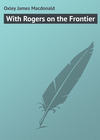Loe raamatut: «Terry's Trials and Triumphs», lehekülg 4
CHAPTER VI
IN HAMPTON ROADS
To make entirely clear the position of the Minnesota at this point, some words of explanation are necessary here. The American Civil War was raging hotly, with the advantage if anything on the side of the Southern Confederacy. In the spring of the year 1861, the Federal forces had hurriedly abandoned their great naval establishment at Norfolk in the State of Virginia, why or wherefore it would be hard to say; for they had completed an effective blockade of Hampton Roads, and might have held their ground against all the forces likely to attack them.
But some sudden panic seizing them, they fled across Chesapeake Bay to Fortress Monroe, leaving vast quantities of cannons and other munitions of war to fall into the hands of their opponents. They sought to consign the navy-yard, together with a number of ships they could not take away, to the flames, but the destruction was far from complete; and the Southern soldiers appeared upon the scene in time to rescue much precious material from the fire – among their spoils being twelve hundred guns, that were afterwards distributed through their fortifications from the Potomac to the Mississippi, where they did sore damage to their former owners.
Among the war-ships burned and sunk at the navy-yard upon its abandonment was the fine frigate Merrimac, of over three thousand tons, and carrying forty guns. On coming into possession of the establishment, the Confederates raised this vessel and rebuilt her, but not on the same plan as before. Instead of being a handsome three-masted ship, with swelling sails, heavy rigging, and black and white checked sides, she became an extraordinary-looking ironclad, the like of which the world had never seen before, and which was destined to effect a complete revolution in the navies of the nations.
Vague rumours concerning this wonderful construction had found their way northward, and it was in response to the call for a strengthening of the blockading fleet in Chesapeake Bay that the Minnesota had been despatched in hot haste from Boston, and was ploughing her way towards Old Point Comfort, that now showed upon the port bow. At Fortress Monroe, which crowned the Point, she would receive her orders; and the thought of what these might be sent a thrill to the heart of every man and boy on board, from the captain down to the youngest powder-monkey.
The sun had already sunk behind the western hills before the frigate reached the Point; and the navigation of Hampton Roads being somewhat difficult, her captain decided to anchor for the night and take on a pilot in the morning. In the meantime, he himself, accompanied by two of his chief officers, went off in a launch to Fortress Monroe, to be informed of the situation and to receive instructions.
As Terry saw the launch shoot away from the vessel's side, there came over him a wild impulse to spring on board her, that he too might be taken ashore. He had already begged the boatswain to let him go, and had been contemptuously rebuffed; but this, instead of quieting him, only intensified his desire to get off the ship before there should be any fighting. He now saw what seemed to him his only chance, and without pausing to consider the folly of his enterprise, darted past the sailors at the gangway-ladder, bounded down the steps, and as the boat swung clear, gathering all his strength into one supreme effort, he sprang out towards her.
For a mere boy it was a grand attempt, but it failed nevertheless. Just as he leaped, the boatswain shouted, "Give way now;" and, driven by twelve brawny oarsmen, the launch shot forward so swiftly that Terry's spring fell short, and he himself vanished in the swirling water!
But only for a moment. Almost before the spectators realized what had happened, his head appeared above the surface, and with skilful strokes he made for the gangway, where a sailor was awaiting him with a grinning face and a helping hand.
"Well, you are a daisy, and no mistake," he exclaimed, in an unmistakable tone of admiration, as he drew the dripping boy up to the platform. "What on earth possessed you to do that?"
Terry gave a despairing glance at the departing boat, now fifty yards away, whose occupants had taken no more notice of his plunge than if it had been the jumping of a pollack, before replying. Then he said with a bitter sigh, as he blew the brine out of his mouth, —
"I wanted to go ashore in her. The bosun wouldn't let me aboard, bad cess to him, so I thought I'd jump for it."
By this time a number of the sailors had gathered round, while several officers were looking over the bulwarks, and Terry's explanation was received with a murmur of astonishment. Standing in the awe they did of the captain of the ship, the idea of this slip of an Irish lad having the audacity to thrust himself on the launch not merely uninvited, but after having been flatly refused, was nothing short of astounding. They had not taken much interest in the boy before, but now they regarded him as quite a novel type, his proceeding had been so utterly out of the ordinary.
"Come up on deck, my boy, and get some dry clothes on you," called put one of the officers. "That was certainly a dashing attempt of yours, even if it didn't come off as you hoped."
Thus commanded, Terry ascended the gangway again, feeling sorely crestfallen, yet as determined as ever to seize the next opportunity that presented itself of getting away from the frigate. When given a sailor's suit that fitted him fairly enough, he at first refused to put it on; but Captain Afleck insisted, and so he yielded, on condition that he might resume his own garments as soon as they were dried.
Thanks to his being in uniform, he was allotted a hammock that night, and forgot his disappointment in the most comfortable sleep he had enjoyed since going on board the vessel, from which he was roused the next morning by an unusual bustle on deck, which foretold the nearness of some important enterprise.
When he came on deck, he found the Minnesota already well under way, making up Hampton Roads towards Newport News in company with two other frigates, the Roanoke and the St. Lawrence. There was intense excitement on board, and every one whose duty permitted him to be on deck seemed to be watching eagerly for something to appear out of the Elizabeth River to the southward. Presently an officer who stood on the main-truck with a powerful glass called out, —
"I see her! She's coming down past Craney Island Flats."
All eyes were at once strained in the direction indicated; but it was some time yet before there came into general view, just off Sewell's Point, so strange a craft that it was at once agreed it could be none other than the much-dreaded naval novelty of which such disturbing stories had been in circulation.
So far as Terry could make out, this mysterious marine marvel was like a queer-looking house afloat on a raft. There were no masts; a short, thick funnel explained how she was propelled. The roof of the house was flat, surrounded by a light iron railing, and boasting two slight poles, from which floated Confederate flags. The side walls sloped in at a decided angle, and the two ends were rounded off into a semicircular shape, the whole being heavily plated with iron.
From a single row of port-holes the muzzles of ten powerful rifled guns projected, the entire effect being warlike in the extreme; for the thing was evidently a fighting-machine, and nothing else, whose power for harm had yet to be gauged by actual experience.
At first the new-comer's course was pointed straight in the direction of the Minnesota, and there was not a man on board so indifferent to danger that he did not feel a keen thrill of apprehension as this strange and menacing antagonist came slowly onward.
The crew at once beat to quarters, and every preparation was made for a desperate defence; but to the undeniable relief of all, the engagement did not then take place, as the Confederate ironclad, after clearing Sewell's Point, turned due west, and headed for Newport News, where the wooden frigates Congress, of fifty guns, and Cumberland, of thirty guns, were swinging lazily by their anchors. Their boats were hanging to the lower booms, and rows of washed clothing flapped in the rigging, showing plainly that those on board were quite unconscious of their danger and expecting no attack.
It was not until the Merrimac had approached within three-quarters of a mile of the two frigates that the boats were dropped astern, the booms got alongside, and fire opened upon the intruder with the heavy pivot-guns. In this cannonade the batteries on Newport News also joined lustily, and the ironclad was the target of many well-aimed cannon.
But although the solid shot were smiting her black sides and the shells bursting upon her exposed deck, she kept steadily on, in sullen, appalling silence, until within close range of the frigates. Then her forward pivot gun, a heavy seven-inch rifled piece, was fired right into the stern of the Cumberland, and at almost the same instant the Congress received the starboard broadside, with dreadful damage in both cases.
Terry had never before seen cannon used for any other purpose than the firing of harmless salutes on the Queen's birthday and similar occasions; and although the Minnesota was still some distance from the combat, and taking no part therein, still the almost continuous roar of the cannon, the shrieking of the shells, and the jets of spray springing up from the water where the balls ricochetted madly across the waves, made him realize how utterly different were his surroundings now.
His first impulse was to seek the lowest recesses of the hold, and there cower out of reach of cannon-ball and bullet until the firing had ceased. But curiosity got the better of this at the start, and presently there came to its aid that love of battle which is in all manly natures, and he determined to stay on deck and see the fight at any risk.
In his heart he hoped for the success of the Confederate ironclad, ugly and clumsy as she seemed. But he had by this time learned to repress his Southern sympathies, and he strove hard to seem a disinterested spectator.
Captain Afleck was so carried away by the extraordinary and splendid spectacle before him that he forgot all his own troubles, and watched the progress of the conflict with as keen an interest as if in some way his own fate depended upon the issue.
"I tell you what it is, Terry," said he exultantly: "this is a great bit of luck for us. Won't we have a fine story to tell when we get back to Halifax?"
"That we will, captain," responded Terry – "providin' we do get back. But I'm thinkin' there's some chance of our gettin' smashed ourselves by one of these murderin' cannon-balls that go skippin' about so lively. Just look at that, will you, captain?"
The Congress had returned the broadside of the ironclad, and although the range was close, only half the iron missiles had hit the mark, the others playing a game of hop-skip-and-jump across the water, and sending up the spray in snow-white spurts.
"It's fine, Terry, isn't it?" said the captain. Then with a quick change of tone he exclaimed, as he grasped the boy's arm in his excitement, "But look there, Terry; what can that queer black thing be up to now? Does she think she can run that fine big frigate down, like this ship did us in Boston Harbour?"
The tone of incredulous surprise was as marked in Captain Afleck's voice as if the ironclad had seemed to be making preparations to fly; yet he had only too correctly guessed the meaning of her next movement. Indeed, before he finished speaking, it was manifest to all; for after exchanging broadsides with the Congress, the Merrimac, paying no heed to the land batteries that were vainly peppering her iron sides with harmless balls, made straight for the Cumberland at the top of her speed, and struck her almost at right angles under the fore-rigging on the starboard side, the heavy iron prow crashing through the wooden sides as though they had been pasteboard, and making a great gaping hole wide enough to admit a horse and cart.
A simultaneous shout of amazement, anger, and dismay went up from the crowded deck of the Minnesota at this startling and horrifying manoeuvre, and in breathless suspense all watched the stricken ship as her assailant withdrew a space and headed up the river, apparently content with her terrific onslaught.
For a few minutes the Cumberland showed no signs of disablement, her guns continuing to be fired with a regularity that spoke volumes for the splendid fortitude of her officers and men.
"She's not done for yet," cried one of the Minnesota's lieutenants exultingly. "That rebel brute will have to try again."
He had hardly spoken when the Cumberland listed badly over to port and began to fill. Down sank the gallant ship, driving her crew to the spar-deck, where they dauntlessly continued to work the pivot-gun, until, with a wild swaying of her tall masts and a sickening shudder of her shattered frame, she plunged beneath the waves, carrying her brave defenders down to an honourable death, yet leaving the Union colours still floating defiantly from her topmast, which projected high above the swirling water.
For the first moment after her disappearance there was an appalling silence on board the Minnesota, and then there broke forth a wild storm of groans, cheers, and curses, as the feelings of her crew found expression. They had witnessed a catastrophe without a parallel in the history of naval warfare. Never before had the tremendous power for harm of the ironclad ram been displayed, and by that one blow the Merrimac had put out of date the navies of the world as then constructed.
Of course Terry neither knew nor cared anything about this; but he could not help being profoundly impressed by the magnitude of the disaster, and his warm Irish heart went out in sympathy towards the gallant men who had stood by their ship to the last moment. In his admiration of their bravery he quite forgot his preference for their victorious opponents.
"O captain," he exclaimed, in a tone of deepest concern, plucking at his companion's arm, "will you look at the poor creatures? Sure they're doing their best to swim ashore, and it's a long way for them too."
His sharp eyes had discovered little bits of black bobbing on the waves, which he took to be the heads of men swimming hard for the beach at Newport News, and the lieutenant's glass confirmed the accuracy of his vision.
"Wouldn't I like to be giving them a hand!" he continued, jumping up and down in the heat of his excitement. He felt so thoroughly at home in the water, that he would not have hesitated a moment at any time to go to the rescue of a full-grown man, and he would have thoroughly enjoyed now going to the relief of the struggling sailors.
But the men of the Minnesota had other work on hand than giving aid to their imperilled countrymen. For aught they knew the ironclad would next be trying her terrible ram on them, and they had need to prepare for her onset.
Having disposed of the ill-fated Cumberland, the Merrimac now gave her whole attention to the Congress, whose commander, realizing the impossibility of resisting the assault of the ram, had, with notable presence of mind, slipped his cables and run his ship aground upon the shallows, where the deep-draught ironclad could not follow her except with cannon-balls.
Although the Congress had four times as many guns as the Merrimac, and was well supported besides by the land batteries on Newport News, it was an unequal contest; for while the projectiles showered upon the ironclad glanced harmlessly off her cannon-proof walls, her powerful rifled guns raked the Congress from end to end with terrible effect.
There could be only one termination to such a struggle. Gallantly as the Northern sailors served their guns, their commander presently was killed, and her decks were strewn with dead and dying. At the end of an hour her colours came down, and white flags appeared at the gaff and mainmast in token of surrender.
Meanwhile the Merrimac had been joined by a number of smaller vessels that had come down the James River after running in gallant style the gauntlet of the Federal batteries which lined the northern bank. They were only gunboats carrying ten guns at the most, and could not take any prominent part in the battle, but they now proved useful in completing the work of the ironclad.
Two of them steamed alongside the shattered Congress, to make prisoners of the crew and set fire to the ship. But they were unable to accomplish either of these duties owing to the heavy fire kept up by the land batteries, and had to beat a retreat; whereupon the Merrimac sent hot shot into the frigate, that soon had her blazing fore and aft, while her crew escaped on shore either by swimming or in small boats.
All this was watched with keen anxiety on board the Minnesota, and the question her men asked themselves was, —
"Will the Merrimac be content with the damage she has already done, or will our ship share the same fate as the other two?"
They were not left long in uncertainty. Swinging slowly around, the huge ironclad, after pausing a few minutes as though to take breath, came down the channel heading straight for the Minnesota. Her day's work was evidently not yet done. She must have another victim before returning to her moorings.
CHAPTER VII
THE GREAT NAVAL COMBAT
When Terry saw the ugly black ironclad bearing down upon the Minnesota, he could not suppress a cry of consternation.
"Oh, whirra! whirra!" he burst forth, dancing from one foot to the other, and swinging his arms about in the extremity of his excitement, "the murderin' thing is coming right for us, and it's smashing us to bits entirely she'll be."
That the captain of the frigate held the same opinion, however differently he might have expressed it, was soon manifest from the manoeuvring of his ship; for instead of remaining out in the north channel, where there was sufficient depth of water for the Merrimac to move freely, he turned his vessel's bow seaward, and kept on in that direction until she had grounded on a shoal about midway between Fortress Monroe and Newport News Point.
All danger from the irresistible ram was now over, as the ironclad could not approach within some hundreds of yards without getting aground herself, which would have put an end to her career; so those on board the Minnesota began to pluck up courage again. Even Terry felt more composed when he realized that the "murderin' thing," as he called it, had to keep a respectful distance.
But they were not permitted to enjoy this little bit of comfort long. The big frigate, towering high above the water, offered only too easy a target to the rifled guns of the Merrimac, and presently their destructive missiles began to come crashing through her wooden sides as though they had been paper, inflicting fearful damage and slaughter.
Yet nothing daunted by the immediate presence of danger and death, the men of the Minnesota plied their own formidable battery; and although the cannon-balls' bounced harmlessly off the impregnable sides of the ironclad, they did their work against her attendant gunboats, so that both had ere long to retire from the combat.
The decks of the frigate soon presented a pitiable sight. The heavy guns of the Merrimac had again and again raked them with dreadful effect, and the dead and the dying lay strewn about, confused with splintered beams and shattered gun-carriages. The ship's surgeons, recking nothing of their own danger, were busy binding up wounds, and having the poor sufferers borne below; while through the smoke-laden air rang the shouts of those still serving the guns, mingled with the groans of their comrades writhing in agony.
In the midst of it all was Terry. When the first shot struck the bulwarks of the frigate, and smashing its way through slew three stalwart sailors and badly wounded two others, he threw himself flat on the deck behind the foremast, completely overcome with sheer horror and fright. There he remained for some minutes, every boom of the cannon sending fresh shudders through his boyish frame.
Presently, amid the occasional pauses in the thunder of the artillery, a moaning cry reached his ear: "Water, water! for God's sake a drop of water!" He had heard it several times before, even in his warm fresh heart, the impulse to help began to tell upon the paralyzing panic that had smitten him. But when, for the fourth time, the piteous wail pierced its way to him, "Oh for water! Won't some one bring me water?" he could lie still no longer.
Getting upon his hands and knees – for he did not dare rise to his full height – he crept across the deck to where the sufferer lay. He found a young sailor, not many years older than himself, dreadfully wounded by a cannon-ball, and suffering agonies from thirst. He was half-hidden by an overturned gun-carriage, and had been overlooked by the surgeon in the wild confusion.
"Water! water!" he panted, looking at Terry with imploring eyes, for he could not move a limb. "For the love of God, bring me some water!"
Terry knew well enough where the water-butts were, but to reach them meant his running the gauntlet of shot and splinter, whose dreadful effects lay all about him. Naturally he shrank from the risk, and looked around in hopes of seeing some of the crew who might undertake it.
But all who were not already hors de combat had their hands full. Whatever was to be done for the poor young fellow must be done by him. The next wail for water decided him. Bending his head as though he were facing a snowstorm, he darted across the deck to the water-butts. Right at hand was a pannikin. Hastily filling it, he retraced his steps, going more slowly now because of his burden, and had just got half-way when a heavy ball smashed into the bulwarks at his left, sending out a heavy shower of splinters, one of which struck the pannikin from his hand, spilling its precious contents upon the deck.
It was a hair-breadth escape, and Terry dropped to the deck as though he had been struck. But this was the end of his panic. So soon as he realized that he was untouched, he sprang to his feet again, and shaking his fist in the direction of the Merrimac, cried defiantly, "You didn't do it that time. Try it again, will ye? I'll carry the water in spite of ye!" Then picking up the pannikin he refilled it, and this time succeeded in bearing it safely to the sufferer, who, when he had taken a long, deep draught, looked into the boy's face, saying gratefully, —
"God bless you for that, even if you are a little rebel at heart."
Not until then did Terry recognize in the man he was helping the sailor whose ire he had aroused by refusing to enter into the ship's service, and his heart glowed at the thought that he had shown him that he could not refuse an appeal for aid even from him.
Throughout the rest of that awful afternoon Terry toiled like a beaver, bearing water to the wounded and to those working the guns, and earning countless blessings from the grateful sailors. He seemed to bear a charmed life. Men fell all round him, while he went unscathed. Again and again the surgeon thanked him for his timely assistance. In spite of all the peril, he never felt happier in his life. He was completely lifted out of himself, and intoxicated with the joy of whole-souled service for others.
As the afternoon advanced, the situation of the Minnesota became increasingly desperate. Of course, being aground, she could not sink; but the rifled guns of the Merrimac had torn great gaping holes in her high sides. She had lost many of her men, and had once been set on fire. Indeed, her surrender or destruction seemed inevitable, when a diversion took place which postponed either unhappy alternative for that day at all events.
Besides the Minnesota, there were two other Federal frigates lying in Hampton Roads, the Roanoke and the St. Lawrence, and they likewise had been run aground for fear of the terrible ram. As if satisfied with the damage done to the Minnesota, and confident that no escape was possible for her, the Merrimac now gave attention to her two consorts, and proceeded to bombard them with her heavy guns.
They returned broadsides with great spirit, and the cannonade continued vigorously on both sides, until an ebbing tide and oncoming darkness warned those in command of the deep-draught ironclad that it was full time to be taking her back towards Norfolk. Accordingly she drew off, and after a couple of parting shots from her stern pivot-guns, steamed slowly back to Sewell's Point, where she anchored for the night.
Unspeakable was the relief on board the three frigates at her withdrawal, and relieved from duty at the guns, their crews at once set to work to repair damages as best they might, knowing full well that they had respite only until daylight.
Terry continued his errands of mercy until his help was no longer required; then, after getting something to eat, he went up to his favourite place in the bow, utterly tired out, and threw himself down to rest.
Here Captain Afleck found him, and together they talked over the events of the day. The captain had not been quite so fortunate as Terry, having received a painful, though not serious, scalp wound. He made light of it, however, and had much to say in praise of his companion for his brave service as a helper of the wounded.
"You'll be the talk of the town, my boy, when we get back to Halifax," said he. "Ye've seen more than any lad of your age in the country, I can tell you; and it's a great story you'll have to tell them at Drummond and Brown's when you take your place there again."
A happy smile lit up Terry's face, so begrimed with powder smoke that the multitudinous freckles were no longer distinguishable. He had quite forgotten Halifax and all belonging to it in the excitement of the battle; but Captain Afleck's words brought his thoughts back, and the idea of his being a kind of hero at Drummond and Brown's, where now they probably considered him little better than a rascal, was exceedingly grateful.
He was just about to say something in reply, when his attention was claimed by the wonderful scene now before his eyes; and clasping Captain Afleck's arm, he exclaimed, in a tone of mingled awe and admiration, "Just look, will ye, captain! did ye ever see the like of that in your life before?"
By this time night had fallen mild and calm. The moon in her second quarter was just rising over the rippling waters, but her silvery light for those on board the Minnesota paled in the presence of the brilliant illumination proceeding from the burning frigate Congress. As the flames crept up the rigging, every mast, spar, and rope flashed out in fiery silhouette against the dark sky beyond. The hull, aground upon the shoal, was plainly visible, each porthole showing in the black sides like the mouth of a fiery furnace, while from time to time the boom of a loaded gun, or the crash of an exploded shell, gave startling emphasis to the superb spectacle.
Having no duty to perform, the captain and Terry could give themselves up to watching the destruction of the noble vessel, and they stayed at the bow until presently a monstrous sheaf of flame rose from her to an immense height. The sky seemed rent in twain by a blinding flash, and then came a loud, deafening report that told the whole story. The flames had reached the powder-magazine, and their work was complete.
In the silence that followed, Captain Afleck, taking Terry's hand, said with a profound sigh, "Come, Terry, let us get to sleep. It breaks my heart to see a fine ship blown to bits like that."
They went below, and finding a quiet corner, threw themselves down to get what rest they could before facing the dangers of another day.
On going on deck the next morning, Terry's attention was at once attracted by the sailors bending over the bulwarks of the ship, evidently much interested in something that lay alongside. Following their example, he saw below an extraordinary-looking craft, which might not inaptly have been compared to a huge tin can set on a gigantic shingle.
It was none other than the famous Monitor, an even more remarkable vessel than the Merrimac, which had come post-haste from New York, and arrived just in time to do battle with the hitherto irresistible rebel ram.
Little as Terry pretended to know about war-ships, he felt quite competent not merely to wonder but to laugh at this latest addition to the Federal fleet; she seemed so absurdly inadequate to cope with the big powerful Merrimac. A flat iron-plated raft with pointed ends, bearing in the middle a round turret not ten feet high, also plated with iron, and at the bow a small square iron hut for use as a pilot-house; while from the round port-holes in the turret projected the muzzles of two eleven-inch rifled guns, which constituted her entire armament. Such was the Monitor.
He was still engaged in studying this queer-looking craft, and feeling sorely tempted to ask some questions of the men who were busy about her decks getting her ready for action, when the crash of a heavy ball against the other side of the Minnesota told him that the Merrimac had already come over from Sewell's Point to complete her unfinished work.
It was also the signal for the Monitor to move out from her hiding-place behind the lofty frigate. Like some strange sea-monster, she swung round the other's stern, and steaming forward so as to come between her and her assailant, dauntlessly challenged the latter to single combat.
Then there took place right before Terry's eyes a naval conflict without parallel in the history of the world, in every respect the most momentous battle ever waged upon the water. Of course, Terry did not realize this, but that did not in any wise lessen the breathless interest with which he watched every move and manoeuvre of the struggle.
















